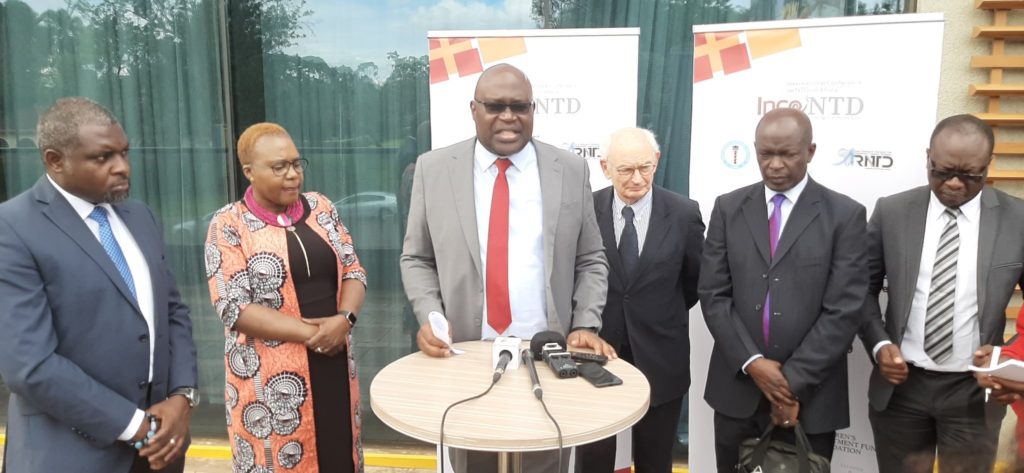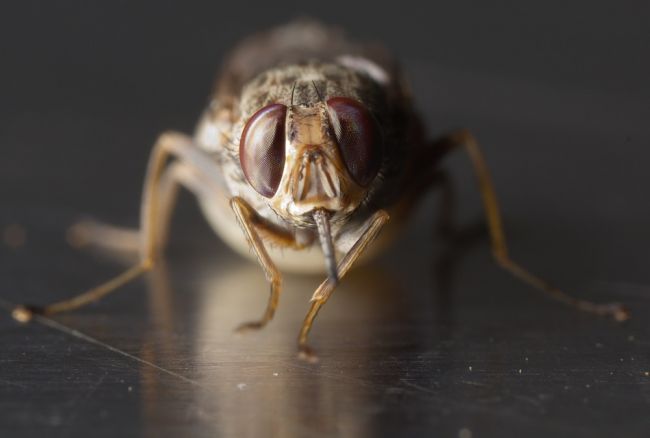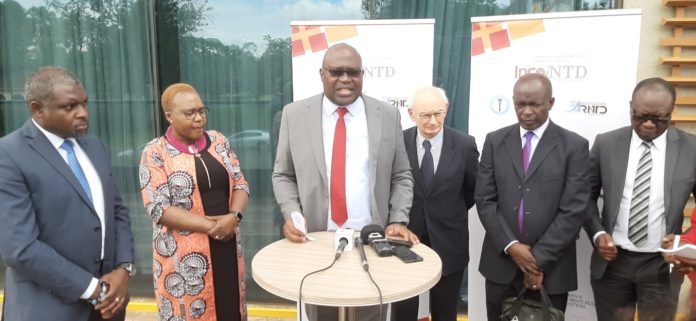By Clifford Akumu
Nairobi , Kenya: Elimination of Sleeping Sickness in Africa is set for a boost after the Bill and Melinda Gates Foundation announced it will invest US$ 7.5 million to help reduce the neglected tropical disease’s burden.
The grant aims to give impetus to the Trypa-NO! the project that is driving elimination of sleeping sickness (Human African trypanosomiasis) transmitted by tsetse fly bites in the continent.
Trypa-NO! the project aims to harmonize and integrate the screening, diagnosis and treatment of sleeping sickness with tsetse fly control in Chad, Ivory Coast, Republic of Guinea and Uganda.
Latest data released by the World Health Organisation (WHO)bolsters a sustained decrease in the number of new cases. Only 1447 new cases were reported to the health body in 2017 compared with 2184 in 2016 and 9875 cases in 2009. Following sustained control efforts, sleeping sickness has now been targeted by WHO for elimination as a public health problem by 2020, with an ultimate goal of reaching zero transmission by 2030.
The Trypa-NO! extension aims to validate disease elimination as a public health problem in Uganda and Ivory Coast, drive cases to zero in Chad and Republic of Guinea, and expand the programme across key country borders into South Sudan, Central African Republic and Sierra Leone.
“This critical funding brings sleeping sickness elimination closer than ever,” said Professor Joseph Ndung’u, Head of Neglected Tropical Diseases at FIND, and the Chancellor of the Jomo Kenyatta University of Agriculture and Technology in Kenya on the sidelines of the ongoing International Conference on NTDs in Africa.

The grant will be managed by the Foundation for Innovative New Diagnostics (FIND), the French National Research Institute for Sustainable Development (IRD) and the Liverpool School of Tropical Medicine (LSTM) to extend the Trypa-NO!project launched in 2016.
Sleeping sickness is an insect-borne parasitic disease of humans and other animals. It is caused by protozoa of the species Trypanosoma brucei. Humans are infected by two types, Trypanosoma brucei gambiense (TbG) and Trypanosoma brucei rhodesiense (TbR).

The disease accounts for more than 98% of reported cases. It is endemic to 36 sub-Saharan African countries, putting 65 million people at risk, and cause many epidemics just a century ago.
The project extension announced today enables the partners to continue activities that will allow these four countries to realize elimination, including the use of existing interventions and innovative strategies.
In Uganda and Ivory Coast – both already on the brink of gHAT elimination – focused technical assistance will be provided on dossier development for elimination validation by WHO and post-elimination strategies.
It will further secure the gains made during the first phase of the project, including activation of elimination surveillance systems, implementation of passive and reactive screening strategies, maintenance or scale-back of vector control, and support for resource planning so that countries can maintain their own programmes without external support.
These activities will extend across border regions to protect the original Trypa-NO! achievements and maintain elimination where there is a risk of disease importation.
Prof. Ndung’u further stated that “The Trypa-NO! extension will safeguard the tremendous progress we have achieved in Chad, Ivory Coast, Republic of Guinea and Uganda, and underlines the critical role of new tools in disease elimination strategies.”
“Close international collaboration, strengthened local capacity and new tools, including ‘Tiny Targets’ to control tsetse, are enabling Trypa-NO! partners to realize the ambitious goal of eliminating Gambian sleeping sickness as a public health problem,” said Professor Steve Torr of LSTM.
“It’s so exciting to see how research can contribute to sustainable solutions such as eliminating one of the most terrible neglected tropical diseases,” said Dr. Mamadou Camara, Head of National Sleeping Sickness Control Programme in the Republic of Guinea. Trypa-NO! extension activities will commence at the end of 2019, and run for 3 years.
The Trypa-NO! project extension is supported by the Bill & Melinda Gates Foundation through a grant to FIND. Additional gHAT elimination activities in Angola, Republic of Congo and South Sudan are supported by the Canton of Geneva, Switzerland.
FIND also confirmed additional funding from the Canton of Geneva, Switzerland, to continue surveillance-based sleeping sickness elimination activities in Angola, Republic of Congo and South Sudan.














